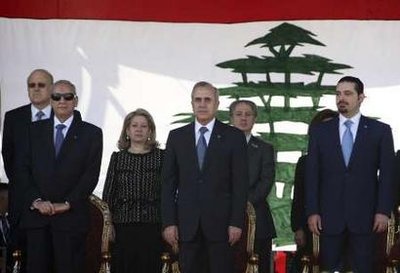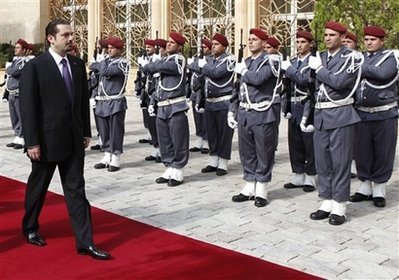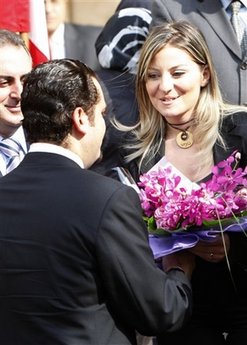After months of negotiations, Lebanon has a new unity government comprising several factions but, as Natalya Antelava reports, many people there now view any government as largely irrelevant.
The noise was becoming unbearable. From all sides, dozens of drivers blared their horns, waved their fists and shouted at the person in front of them.
"It’s all his fault," my taxi driver spat out, pointing straight ahead. I ducked out to look.
There, in the middle of the sea of honking cars, stood a thin young man in an oversized policeman’s uniform.
Helplessly he waved his skinny arms trying to steer angry drivers. The problem was that he was steering them in all directions at the same time.
"He is the one who created the jam, he should just mind his own business," my taxi driver said. The fact that traffic was the policeman’s business did not seem to cross his mind.
Ask anyone in Beirut and they will tell you that, if there is a really bad traffic jam, chances are there is a policeman behind it. It is not always true, of course, but it is certainly indicative of how Lebanese people approach authority.
"The best thing that the government can do is stay out of my life," a friend recently told me.
Political paralysis
The attitude is not surprising. For decades, Lebanon’s politicians have done nothing but drive the country into deadlock.

The new government’s first meeting was on 10 November 2009
|
The country’s current crisis is just the latest episode of its chronic political paralysis.









